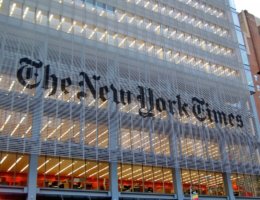Eleven years after Jimmy Carter was excommunicated for using the word “apartheid” to describe Palestine, the description is showing up in more mainstream places. The Israeli human rights organization Peace Now says that Hebron has an “apartheid system,” and Israeli journalist Avi Issacharoff says in the New Yorker that it’s only a matter of time before Europe says “No more apartheid!” to Israel.
Prominent U.S. poets, writers, playwrights and publishers issued statements today in support of imprisoned Palestinian poet Dareen Tatour ahead of her upcoming trial verdict on October 17. The statements calling for her freedom, and demanding that Israel drop all charges against Dareen, released by Jewish Voice for Peace and Adalah-NY, come just as the Israeli government threatens to cut funding to a Yaffa Theater that agreed to host an artists’ solidarity event for Tatour on August 30th. Tatour, a Palestinian citizen of Israel, was arrested by Israeli authorities 22 months ago, in October 2015, and charged with incitement to violence primarily over a poem she posted online, “Resist, My People, Resist Them,” as well as two Facebook posts.
In its story about a renewed investigation into the murder of Naji al-Ali, this is how the New York Times describes the British occupation and then The Nakba: “He fled his home in the British Mandate of Palestine at the age of 10 during the war that accompanied the creation of Israel.”
Amena El-Ashkar, a Palestinian refugee from Lebanon, will speak on the Nakba Tour at events across the U.S. and Canada this fall alongside Khawla Hammad, a survivor of the Nakba who was “16-years-old when she last lived in Palestine. That was 1948, when the Zionist militias drove her out along with her family and more than half the Palestinian population in Palestine. Since then, she has lived as a refugee in Lebanon, with no citizenship in any country, and few rights.”
The New Yorker runs a long article about an Israeli TV series involving an Israeli military unit in the West Bank, and it’s filled with the usual shooting-and-crying theme — the oh so sensitive but tough Israelis telling an American journalist about the occupation.
“The American Legion has looked at us with disdain and dishonor for years,” says Ernest Gallo, president of the USS Liberty Veterans Association, but last week pushed by its grassroots, the Legion’s convention voted to call on Congress to investigate the June 8, 1967 attack on the Liberty by Israel that killed 34 sailors. There has never been a U.S. government investigation of the matter.
On August 28, Palestinians in Hebron took to the streets to protest a newly-extended fence that divides the road leading to the Ibrahim Mosque in half; two-thirds of the street is divided off and allocated to the Israeli settlers, with the remaining third left for the Palestinian community. Ella Hattey writes, “The segregation fence of Salayma makes life intolerable for its residents, it imprisons a community guilty of no crime-except that of being born Palestinian.”
Eight-year-old Palestinian girl Aseel Abu ‘Oun was killed Saturday by an Israeli settler who drove his car near where she lived in the Foroush Beit Dajan village, in the Nablus district. She was buried Sunday, and her family said the announcement of an investigation by Israel of the killing is likely meaningless, meant to quell public anger.
The never-ending deathbed vigil for the two-state solution has reached a new stage. The Trump administration’s refusal to commit to the two-state solution is horrifying liberal Zionists who fear threats to the Jewish state, but Netanyahu is overjoyed. He celebrated the settlements this week: “This is the inheritance of our forefathers, this is our country… We came back here to stay forever. There will be no more uprooting of settlements in the Land of Israel.”
Suha and Yafa Jarrar have come to accept that their family is never safe. Being the daughters of Khalida Jarrar, a well-known leftist lawmaker in the occupied Palestinian territory, brought its challenges, but the young women are proud of their parents for their involvement. “No matter how hard it has been, we could never fault our mother for her involvement in politics, even if it can be dangerous, it is something she is passionate about and she always encouraged us to follow our passion,” Suha says. “So we will always support her in hers.”









